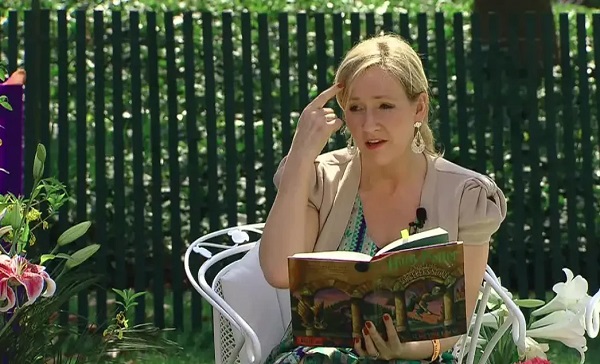Alberta
Jann Arden’s Rant Will Only Fuel Alberta’s Separation Fire

From the Frontier Centre for Public Policy
By Lee Harding
In a fiery takedown of Alberta sovereigntists, Jann Arden may have poured gas on the sovereignty fire instead of dousing it. Lee Harding argues that her vulgar swipe ignored Alberta’s raw deal in Confederation, from lopsided equalization to federal overreach, and only deepens Western alienation. Rather than shaming Albertans into silence, her outburst might push them closer to the exit.
The singer’s foul-mouthed tirade won’t shame Alberta into silence. It’ll only push the province further toward the door
Jann Arden’s recent tirade against sovereigntist Albertans will probably do more to motivate them than set them back.
In an online rant, the Calgary-born-and-raised singer lowered public discourse a few notches.
“Hey, Alberta. Hey, you bunch of fu-king separatist wackos. How you doing? Feeling good about yourselves? You’re an embarrassment to this country. Everything you have, everything that you have enjoyed, cherished and benefited from, comes from being part of one of the greatest countries on the planet.”
Ha! Arden only embarrassed herself with her rudeness and ignorance.
Canada has been milking Alberta for a long time. In a 2024 study, the Fraser Institute showed that from 2007 to 2022, Albertans contributed $244.6 billion more in taxes and other payments to the federal government than they received in federal spending, more than five times as much as British Columbians or Ontarians. The other seven provinces were net takers.
Alberta is carrying Canada’s load by doing many things right, only to get zero respect and little benefit in return. For the past 10 years, Ottawa has done everything it can to undermine the energy sector through regulation and taxation, and encroach on provincial jurisdiction through legislation. Rather than feeding and protecting the goose that lays the golden eggs, it would rather pluck out its feathers.
The imbalance is nothing new. Since Confederation, most Canadian provinces have enjoyed jurisdiction over their natural resources. However, Alberta and Saskatchewan didn’t get that until 1930. When equalization began in 1957, Alberta received payments for eight years and never again. Quebec has been paid every year.
Ottawa went the route of more taxation, programs and debt, while Alberta took a more conservative approach. Its capacity to spend rose and fell with the price of oil. Just when Alberta hit another good wave, Ottawa launched the National Energy Program in the early 1980s—just to remind them who ruled the country and to whose benefit. Alberta got reduced profits and Eastern Canadians got cheap gas.
Alberta has been stuck in an abusive relationship for a long time and is wondering if it wouldn’t be better to be on her own. In the background is another suitor named Donald Trump, who would relieve Alberta of those pesky equalization payments and onerous regulations. The province would become the “cherished 51st state” instead of some western challenger to Central Canadian dominance that always needs to be put in its place.
Arden can’t see any of this. And her vitriol does nothing to make Albertans want to stay.
“You guys have your head so far up your as-es that you obviously can’t see what pri-ks you are,” Arden ranted. “The way you are treating your fellow citizens, your fellow Canadians, you guys are a bunch of creepy little pri-ks…
“Alberta will never separate from Canada. It’s never going to happen because people like me are going to stand up, throw their shoulders back, and keep fu-king yelling and keep standing up for what I know is right.”
Oh? Should Albertans stay because an insulting singer inspires a screaming mob? Will they suddenly find gratitude?
No. Abused Albertans have had enough. Their wants are not only reasonable, they’re good and fair policy. Canadians and their federal government should treat Alberta with proper respect, care about its grievances and feelings, and appreciate how they’d be a whole lot worse without her.
Lee Harding is a research fellow for the Frontier Centre for Public Policy.
Alberta
Jason Kenney’s Separatist Panic Misses the Point

By Collin May
Time was a former political leader’s expected role was to enjoy retirement in relative obscurity, resisting the urge to wade into political debate. Conservatives generally stick to that tradition. Ralph Klein certainly did after his term ended. Stephen Harper has made no attempt to upstage his successors. Yet former Alberta Premier Jason Kenney can’t seem to help himself.
From the boardroom of Bennett Jones, one of Calgary’s oldest law firms, Kenney recently offered his thoughts on the unspeakable horrors that await the province should it entertain a debate (perhaps even call a referendum) on separating from Canada. While dismissing Alberta separatists as a “perennially angry minority”, Kenney nevertheless declared a vote on separation would “would divide families, divide communities, divide friends for no useful purpose.” Business partnerships, church and community groups, even marriages and families would break apart, he warned, “shredding the social fabric of the province.”
It was a remarkable burst of untethered hyperbole, but it says more about the former premier than it does about the province he once led.
Kenney’s take on the history of Alberta separatism is telling. It’s a 50-year-old “discredited concept,” he said, whose acolytes “couldn’t get elected dogcatcher in this province.” Exhibit A in his analysis was Gordon Kesler, an Alberta rodeo rider and oil company scout who believed independence was the only way to save Alberta from Ottawa’s depredations. In a 1982 byelection, Kesler got himself very much elected as an MLA under the Western Canada Concept banner. He later lost in the general election to Peter Lougheed’s Progressive Conservatives, but Lougheed did not belittle Albertans for entertaining separatist notions. Instead, he asked for a mandate to fight Ottawa more effectively — and got it.
Kenney, by contrast, ridicules separatists while simultaneously painting them as an existential menace. Worse, he likens them to followers of Vladimir Putin and (perhaps even worse?) Donald Trump. “[I]f you just follow them on social media,” he claimed, one will quickly see that they cheered on Putin’s attack on Ukraine and Trump’s threat of making Canada the 51 st state.
Kenney’s latest intervention fits a pattern. As premier from 2019 to 2022, he could not resist trying to stamp out dissent. During the pandemic, he alienated political allies by dismissing their concerns about mandatory vaccines with contempt. He saw his ouster as UCP leader as the result of a Trumpian-inspired or “MAGA” campaign. UCP party faithful, however, said their rejection of him had far more to do with his top-down leadership style and habit of “blaming other people for the errors he made.”
What’s especially striking about Kenney’s separatist obsession is that he seems to understand as little about Albertans now as he did while premier. Albertans have long debated separation without the province descending into chaos. When Kesler won his seat, people talked about separation, argued its pros and cons, but couples were not running to their divorce lawyers over the issue and business partners were not at each other’s throats.
And there are legitimate reasons for concern about Canada’s social and political structure, as well as the role provinces play in that structure. Canada’s institutions operate largely on an old colonial model that concentrates power in the original population centre of southern Ontario and Quebec. This has not, and does not, make for great national cohesion or political participation. Instead, it feeds constant fuel to separatist fires.
The current threat to Canadian identity comes as well from the ideological commitments of our federal government. Early in his time as Prime Minister, Justin Trudeau declared Canada to be a “post-national” state. This sort of moniker is consistent with the popularly-designated woke doctrine that eschews the liberal nation-state, democratic procedures and individual freedom in favour of tribalist narratives and identity politics.
The obsession with post-nation-state policies has initiated the dissolution of the Canadian nation regardless of whether Quebeckers or Albertans actually vote for separation. We are all becoming de facto separatists within a dissolving Canada, a drift that current Prime Minister Mark Carney’s ineffective “elbows up” attitude has done nothing to reverse.
Kenney’s panicked musings about Alberta separatists would have us believe the province need only continue the fight for a better deal within the Canadian federation. Kenney pursued just such a policy, and failed signally to deliver. For too many Albertans today, his advice does not reflect the political reality on the ground nor appreciate the worrying trends within Canadian institutions and among our political class.
Kenney likes to associate himself with Edmund Burke, the father of conservatism and defender of venerable institutions. But Burke was known as much in his day for his sympathies with the American revolutionaries and their creation of an experimental new republic as he was for his contempt towards the French Revolution and its Reign of Terror. Burke’s conservatism still linked real actions with true words. It would be advisable, perhaps, to keep our own political language here in Alberta within the bounds of the plausible rather than fly off into the fanciful.
The original, full-length version of this article was recently published in C2C Journal.
Collin May is a lawyer, adjunct lecturer in community health sciences with the Cumming School of Medicine at the University of Calgary, and the author of a number of articles and reviews on the psychology, social theory and philosophy of cancel culture.
Alberta
Alberta Is Where Canadians Go When They Want To Build A Better Life

From the Frontier Centre for Public Policy
One in three Canadians chooses Alberta to start over. But to stay Canada’s top destination, it must fight Ottawa’s barriers and complacency
No province has captured the Canadian imagination quite like Alberta—and not because of oil.
One in three Canadians leaving their provinces in the past five years headed to Alberta. They were escaping stagnant wages, high housing costs and suffocating bureaucracy. They came for freedom and opportunity, and Alberta delivered. Its edge is cultural: it rewards enterprise instead of strangling it.
The question now is whether Albertans can keep that edge before Ottawa and complacency close in.
Prosperity, like liberty, vanishes the moment people stop fighting for it. If Alberta wants to remain Canada’s economic engine, it must continue to move forward, tearing down old barriers while fending off the new ones that Ottawa and other provinces are always erecting.
The cost of standing still is staggering.
Economists say provincial trade barriers (rules that prevent goods, services, and workers from moving freely) cost the Canadian economy up to $130 billion a year. For Alberta, even a 10 per cent reduction would be worth $7.3 billion a year.
When Quebec killed the Energy East pipeline that would have carried Alberta crude to eastern refineries, Alberta lost the chance to export oil worth as much as $15 billion annually.
That’s not theory. That’s lost paycheques, lost tax revenue and public services that never materialized.
Alberta has always been more willing than others to break free from the barriers that hold back growth. Liquor sales were privatized decades ago, as were property registries. The New West Partnership with Saskatchewan, Manitoba and B.C. opened labour mobility and procurement, though it has since stalled. Alberta doesn’t impose cultural tests and it doesn’t levy a provincial sales tax. Families arrive because life here is easier. They can work, start a business, raise kids or simply breathe without bureaucrats looking over their shoulder.
But cracks remain. Liquor shelves may be free, but the Alberta Gaming, Liquor and Cannabis Commission monopoly clogs the warehouse. Professional associations in law, teaching and health care are slow to recognize credentials and drown their members in red tape.
Procurement often tilts local, because, apparently, free markets stop at the city line. And like every other province, Alberta still bows to Ottawa’s anticompetition telecom rules, the dairy and poultry cartel and the banking oligopoly, systems that consistently benefit Quebec farmers and Bay Street lenders at Alberta’s expense.
And as if the old cracks weren’t enough, new barriers are appearing. One of the worst is protectionism. Canadians love mocking Donald Trump’s tariffs, yet happily embrace the same thing at home. “Buy local” sounds warm and fuzzy but props up cartels in groceries, banking, telecom and construction. The truth? We’ve imposed more barriers on ourselves than Trump ever dreamed of.
Prime Minister Mark Carney exemplified the problem when he promoted subsidies for canola farmers. It was a double insult. First, it showed Ottawa would rather hand out cash than negotiate hard. Second, it reminded farmers that the “help” isn’t free. They pay for it through their own taxes, scooped from Saskatchewan and Alberta, laundered through federal bureaucracy, then mailed back with a ribbon.
Carney also vowed that interprovincial barriers would vanish by July 1, 2025. That deadline came and went. His shiny new “process” for expediting infrastructure looks like more of the same: more Ottawa mediation that risks slowing everything down.
But it isn’t only economics standing in the way. Ideology is becoming a barrier of its own. Diversity, equity and inclusion has morphed into a system for entrenching gatekeepers. It compels people to think and act in ways they didn’t choose. It drains productivity, creates make-work compliance jobs and sorts people into categories. Worst of all, it punishes anyone who doesn’t conform. Alberta resists this infection better than most, but its universities and federally dependent agencies are already hooked.
Then comes debanking. In 2022, Ottawa showed how quickly it could freeze accounts, and banks complied without hesitation. Since then, regulators have only expanded their reach under the banner of anti–money laundering and climate policy. The message is blunt: if Ottawa decides your sector is undesirable, access to financial services can vanish. For Alberta, with its energy industry branded a planetary threat, this is no hypothetical.
A free economy is meaningless if citizens can be financially exiled from it by decree. Alberta must shield its people by turning ATB, its provincially owned bank, into a fortress institution and enshrining access to financial services as a civil right.
So what does moving forward mean? It means doubling down on being the most desirable province to live and work. That requires bold reforms. Cut regulators down to size. Protect banking access in law. Decentralize big-city governments to make them more accountable and give residents real choices. Reform health care to expand choice and slash wait times. Deregulate housing and trucking to lower costs. Confront public-sector unions that act as ideological monopolies.
Canada loves to brag about free trade, but governs like a feudal kingdom. Alberta has already shown that a freer path is possible. The task now is to resist cartels, fight the banks, tear down old walls and stop new ones from rising.
Alberta has always been a frontier of builders, risk-takers and prosperity seekers, and to thrive it must keep moving. If Alberta leads, it will stay prosperous and desirable. If it falters, doors will close.
The choice is clear: Alberta can either be strangled by regulations or break free and keep its frontier spirit alive.
Marco Navarro-Genie is vice-president of research at the Frontier Centre for Public Policy and co-author, with Barry Cooper, of Canada’s COVID: The Story of a Pandemic Moral Panic (2023).
-

 National3 hours ago
National3 hours agoCanada’s birth rate plummets to an all-time low
-

 Crime2 hours ago
Crime2 hours agoPierre Poilievre says Christians may be ‘number one’ target of hate violence in Canada
-

 Alberta1 hour ago
Alberta1 hour agoJason Kenney’s Separatist Panic Misses the Point
-

 Red Deer2 days ago
Red Deer2 days agoThe City of Red Deer’s Financial Troubles: Here Are The Candidates I Am Voting For And Why.
-

 Automotive4 hours ago
Automotive4 hours agoBig Auto Wants Your Data. Trump and Congress Aren’t Having It.
-

 Aristotle Foundation1 day ago
Aristotle Foundation1 day agoEfforts to halt Harry Potter event expose the absurdity of trans activism
-

 Business2 days ago
Business2 days agoCall for Federal Inquiry as Pressure Mounts for Release of Buried Report on Buddhist Land Transactions in PEI
-

 Bruce Dowbiggin1 day ago
Bruce Dowbiggin1 day agoCanada’s Humility Gene: Connor Skates But Truckers Get Buried




